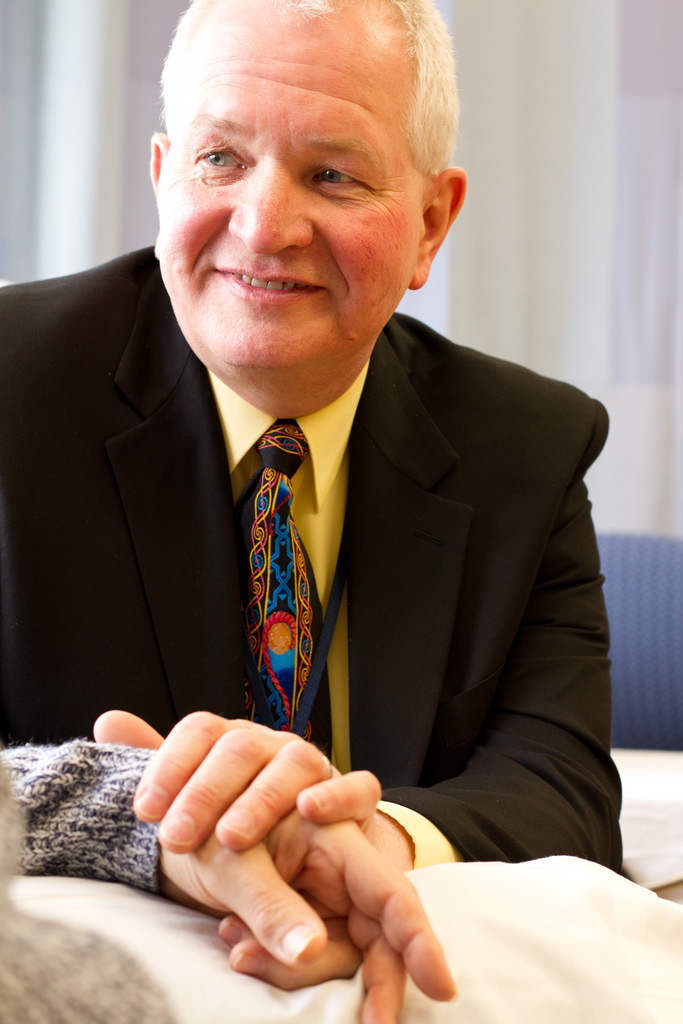Spiritual Care for Patients and Families

Chapels and Quiet Rooms
The University Hospital Chapel is located on the second floor of University Hospital, room 2A215.
The C.S. Mott Children's and Von Voigtlander Women's Hospital Chapel is located on the second floor of that hospital, room 2780.
There are also quiet rooms in the Cardiovascular Center located on floor 2A, room 001B, and floor 4, room 4141.
All are open 24 hours a day. A clinically trained chaplain is available 24/7/365 in-house or on-call. Call 734-936-4041 for more information.
Photo Credit: Edda Pacifico
Whenever it is Needed
Never are spiritual concerns more present or more urgent than during a serious illness or at the end of life. Michigan Medicine's Department of Spiritual Care chaplains walk that journey with patients and families all day, every day.
"We're here to meet them wherever they are on their journey. We're trained and we have the skills to do so in a caring, empathetic way," says Rev. Lindsay Bona, the clinical coordinator for the Spiritual Care Department.
The chaplains represent a wide variety of religions and faith traditions. If there is not a chaplain of your faith currently on staff, the department has strong connections with local congregations and faith resources, and they can arrange a visit from a religious leader of your choosing.
"No matter what time of the day or night, there's always someone available," says Bona.
In addition to providing ritual support such as prayers, communion, anointing, baptism, blessing and reconciliation, they also provide worship services and bereavement consultations.
Bona says, "Sometimes a patient is doing really well but they feel that their family is not. We're here for patients and families, including those who have children or if the patients are children.
Several of our staff are trained in pediatrics and children's spiritual life, and we can help whether the child is the patient, the sibling, or the son or daughter of those who are dying."
Rogel Cancer Center Chaplain Deacon Wayne Charlton says that it is important for people to use whatever resources are available within their faith tradition and that talking with a chaplain is not just for people of faith.
Charlton, who has been a U-M chaplain for 24 years, says that meeting with a chaplain can benefit anyone who is going through a serious illness or end-of-life issues.
"Some of the most profound experiences I have witnessed are with people who don’t identify with a particular faith tradition," he says. "They may relate more to science or nature, but during their disease seek something to help them understand what is going on in a profound way. We all yearn for that connection."
For more information on Spiritual Care:
Visit www.uofmhealth.org/our-chaplains for information about our chaplains.
Read the Winter, 2015 issue of Thrive.
